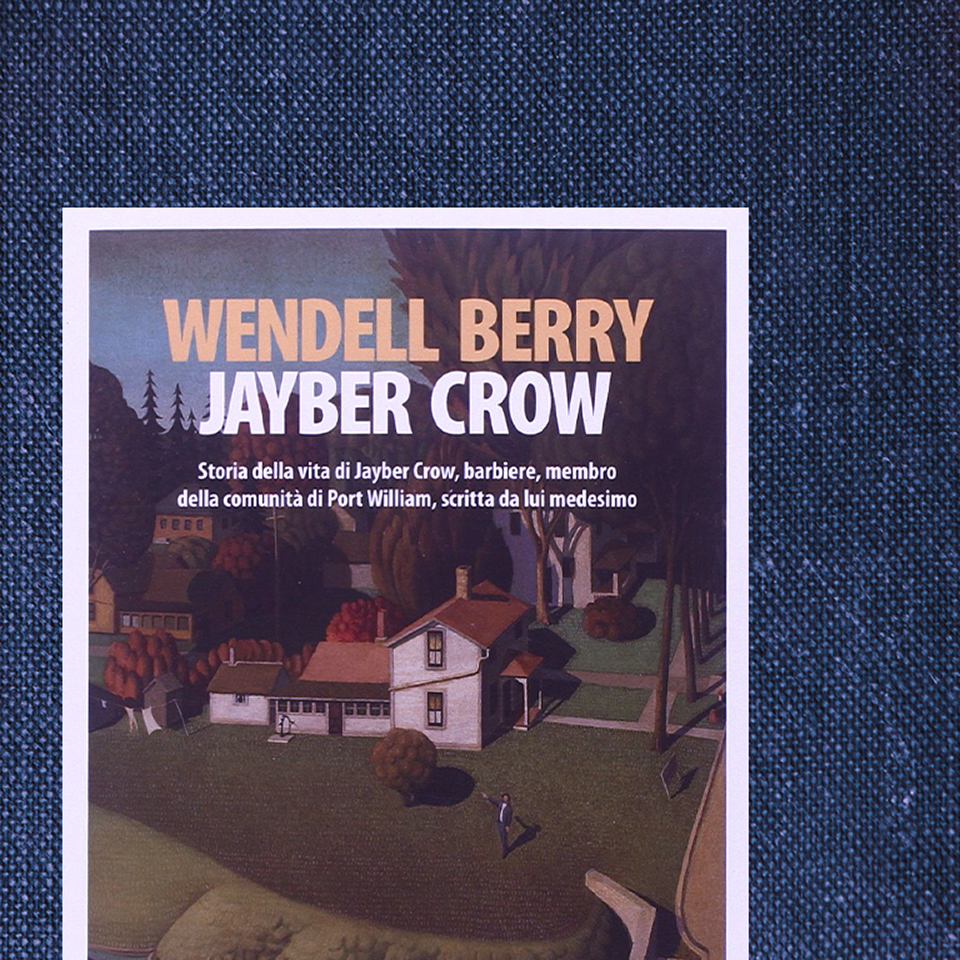Wendell Berry’s novel Jayber Crow has touched the lives of many readers since its publication in 2000. Set in Berry’s fictional town of Port William, Kentucky, the title character’s hidden, inner life explains what his neighbors, who love him, dismiss as eccentricities. As someone born in another town and unattached by way of marriage and family, Jayber’s decades-long presence in Port William has the quality of a permanent observer. As the town barber, Jayber hears all the stories.
But Jayber has two other jobs in Port William: gravedigger and church janitor. And around the midway point of the novel, Berry invites us into the experience of Jayber’s sacred duties in the cemetery and in the sanctuary. The chapter “The Beautiful Shore” feels a bit like a Flannery O’Connor short story. And like the best of O’Connor’s tales, this single chapter from Berry is full of complicated grace.
“The Beautiful Shore” gets us from the threshold of natural theology almost through the door of sacraments and the Church—but not quite. Wendell Berry is not Catholic, and Jayber describes himself toward the end of the book as “the ultimate Protestant.” He elaborates, “The belief has grown in me that Christ did not come to found an organized religion but came instead to found an unorganized one.”
Jayber had once trained to be a Baptist preacher—a fact no one in Port William knows—before he abandoned his studies and put out his shingle to cut hair in a faraway town. Jayber says of his neighbors in Port William, “They learned to have a very high opinion of God and a very low opinion of his works.” Jayber, “the ultimate Protestant,” doesn’t know what to do. Neither he, nor Berry himself thus far, has been able to translate a properly high view of God and of his works into Catholicism. But some readers will. I did.
“The Beautiful Shore” begins outside in the graveyard before moving in. Jayber lives in a kind of communion of saints. He enjoys the silence and solitude of digging; and yet he is never alone. Not only does he feel a connection to the names on the headstones, but he notices how his workplace sometimes becomes “a very social place for the living,” as people bump into each other visiting their respective loved ones. Jayber is also full of hope about what has happened to the people whose bodies lie beneath his feet. He confesses, “I feel a little uneasy in calling them ‘the dead,’ for I am as mystified as anybody by the transformation known as death, and the Resurrection is more real to me than most things I have not yet seen.”
We then move inside the church, which Jayber cleans meticulously each Friday evening, in anticipation of Sunday morning worship. He tells us that he avoided attending church for years, but he has returned to sit quietly in the back and watch the congregation benefiting from his labor. He enjoys the singing; but as a former Bible college student, Jayber is a constant critic of the preaching he hears. He can hardly believe that the townspeople, who relish the simple pleasures of life, put up with fire and brimstone sermons. He notes that the preachers come and go—young men who have studied just enough to get to know Port William “as it theoretically was (‘lost’) and as it theoretically might be (‘saved’).” The people sit and listen every Sunday, even though, Jayber says, “I didn’t think anybody believed it.”
Of course not.
The people of Port William love the world, as do all reasonable people. We love it because it is lovable. We love it because God loves it.
The townspeople’s religion is not one of sackcloth and ashes. On the contrary, church is where they get to enjoy wearing their best clothes. Jayber notes, “The people who heard those sermons loved good crops, good gardens, good livestock and work animals and dogs; they loved flowers and the shade of trees, and laughter and music.” After church, everyone in town goes home to their most delicious meal of the week, and “the preacher and his family would always be invited to eat with somebody, and they would always go, and the preacher, having just foresworn on behalf of everybody the joys of the flesh, would eat with unconsecrated relish.” Again, “nobody,” not even the preacher himself, “believes it.”
“The Beautiful Shore” concludes with a mystical vision that intensifies the message that God loves the world, and that God’s people shouldn’t pretend not to love his creation. It also heightens the tragedy that Jayber, representing so many people who rightly reject false teaching, does not seek the intersection of truth, beauty, and goodness in its fullest expression in the Catholic Church. One night while cleaning the church, Jayber gets sleepy and lies down on the floor. He closes his eyes and sees all the people of his adopted home—the people he observes and judges, and loves. The chapter concludes, “They were just there. They said nothing, and I said nothing. I seemed to love them all with a love that was mine merely because it included me. When I came to myself again, my face was wet with tears.”
“Included,” and yet still, sadly, an outsider: “The ultimate Protestant.”
If you can get to the end of “The Beautiful Shore” without finding your face “wet with tears,” you’re a more stoic person than I. I come back to this chapter over and over again. I often mentioned it in sermons when I was an Anglican cleric. It refreshes my faith in God, whose works are wondrous to behold; and it deepens my sorrow that, for many people, the Church has not yet been the place to turn to experience true beauty, and true belonging.
